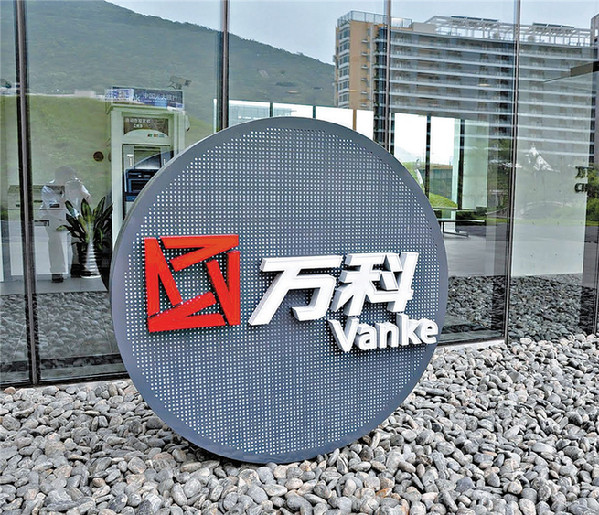China Vanke taps UK real estate market
- By Tom Cunliffe
 0 Comment(s)
0 Comment(s) Print
Print E-mail China.org.cn, February 5, 2015
E-mail China.org.cn, February 5, 2015
|
|
|
View of the headquarters of China Vanke Co Ltd in Shenzhen city, south Chinas Guangdong province. [File photo] |
Wang Shi, Vanke's Chairman, spoke to China.org.cn at the Asia Business Forum held in London on January 30, 2015, which is sponsored by London Business School.
Wang said that Vanke didn't come to the UK in search of high profits but to learn how a mature housing market works. "In UK, the main revenue of real estate companies comes from their housing property services (including rental and service fees) and this accounts for a major slice of their profits, unlike China where profits come mainly from selling houses."
Vanke is trying to learn how real estate financial services function in a mature market as well as studying fund-raising systems and services. It is seeking UK partners for its overseas residential and commercial investment plans. As negotiations are ongoing, Wang didn't provide further details about its current plans.
Focused on residential property development, Vanke reported sales revenues of 215.13 billion yuan (US$34.6 billion) in 2014, a 25.9 percent year-on-year growth, according to the Shenzhen Stock Exchange.
As an advocate of green buildings, Vanke promised to cut carbon emissions by 5.3 million tons by 2018.
Wang praised British government building emissions plans. "It's difficult to imagine the plan that the UK government will introduce in 2016, when its policy that all new buildings should produce zero carbon emissions comes into force. China should learn from this."
He revealed that Vanke is collaborating with the UK's Building Research Establishment (BRE) on the sustainable construction of buildings. The BRE have a long history of helping to design and construct buildings that reduce environmental impact and they are internationally recognised for their cutting-edge sustainability initiatives.
"This collaboration will enable us to share knowledge and expertise in sustainable building in order to drive innovation in China's construction industry."
Wang is not so optimistic about China's housing market. "There is a big bubble in China's second-tier cities, as well as in house prices in Beijing and Shanghai. The difficulty the Chinese housing market is now facing is just the beginning. Whether or not house prices go down will depend on government policies."
Wang noted that an expansionary monetary policy in a deflationary environment would sustain the bubble in China's real estate sector.
"The biggest risk is in China's second and third-tier cities because they have less economic resources. Vanke will focus on projects in coastal cities in Southeast China."
Wang mentioned that Vanke's goal is to have 15-20 percent of its investment in foreign countries, to balance its risks.
"There are three reasons why we invest abroad: firstly, we go to industrially developed countries to learn and prepare for China's urbanization; secondly, we like to balance our investments; thirdly, we follow our customers: as Chinese buyers go to the U.S., so do we."







Go to Forum >>0 Comment(s)